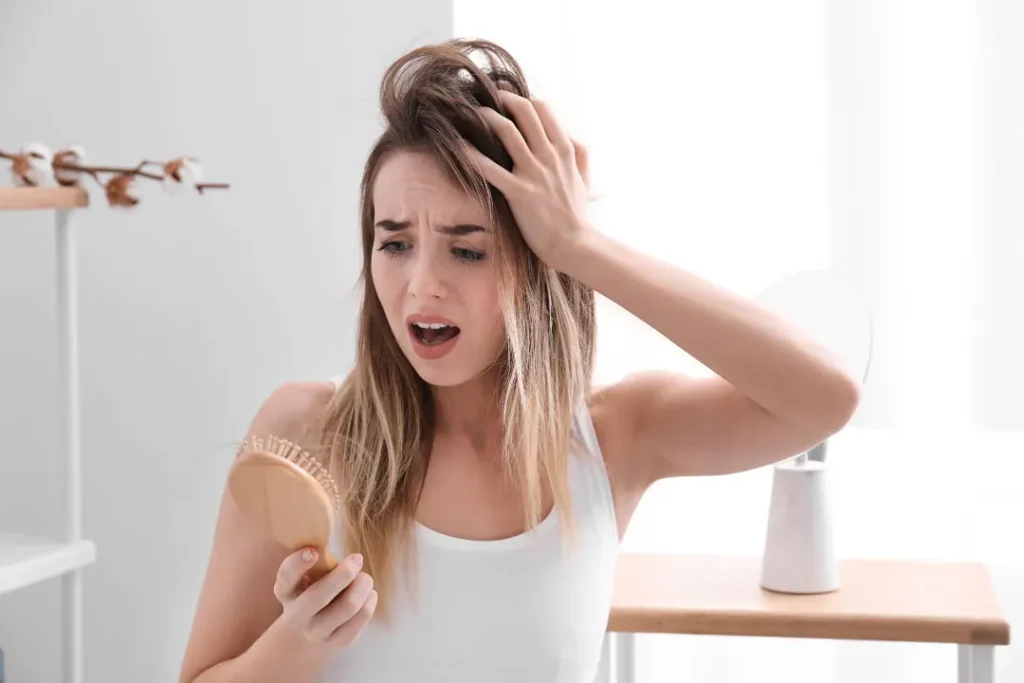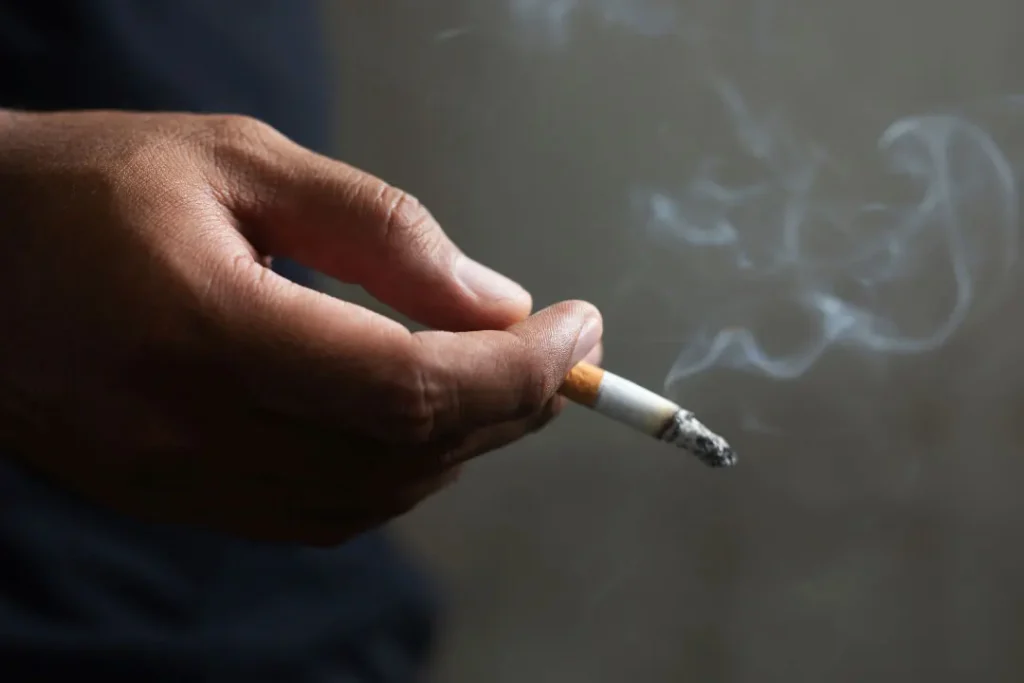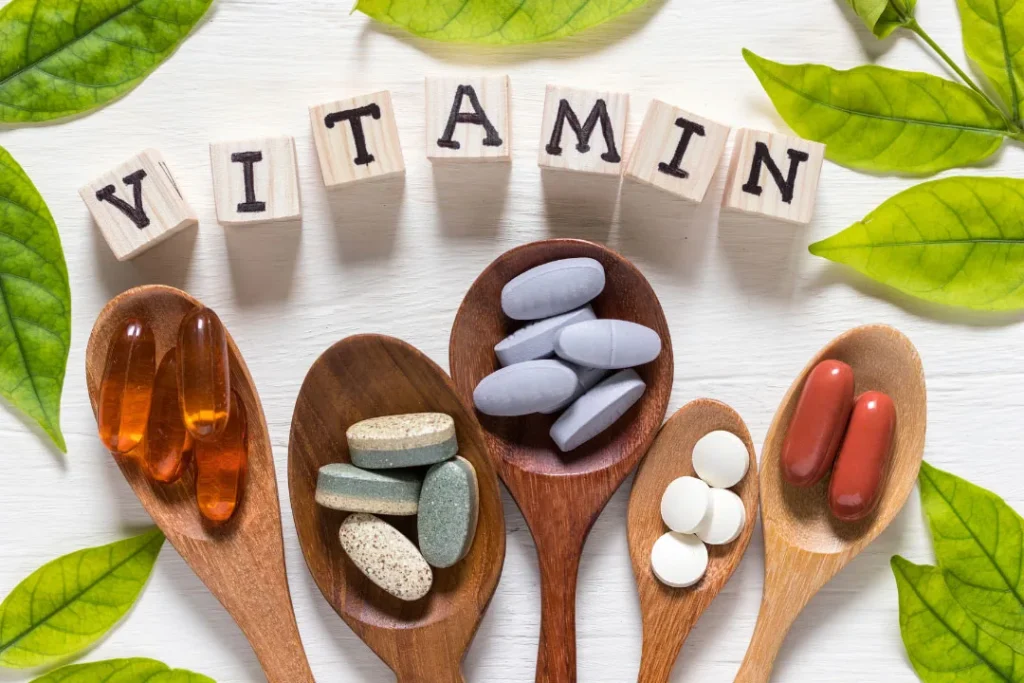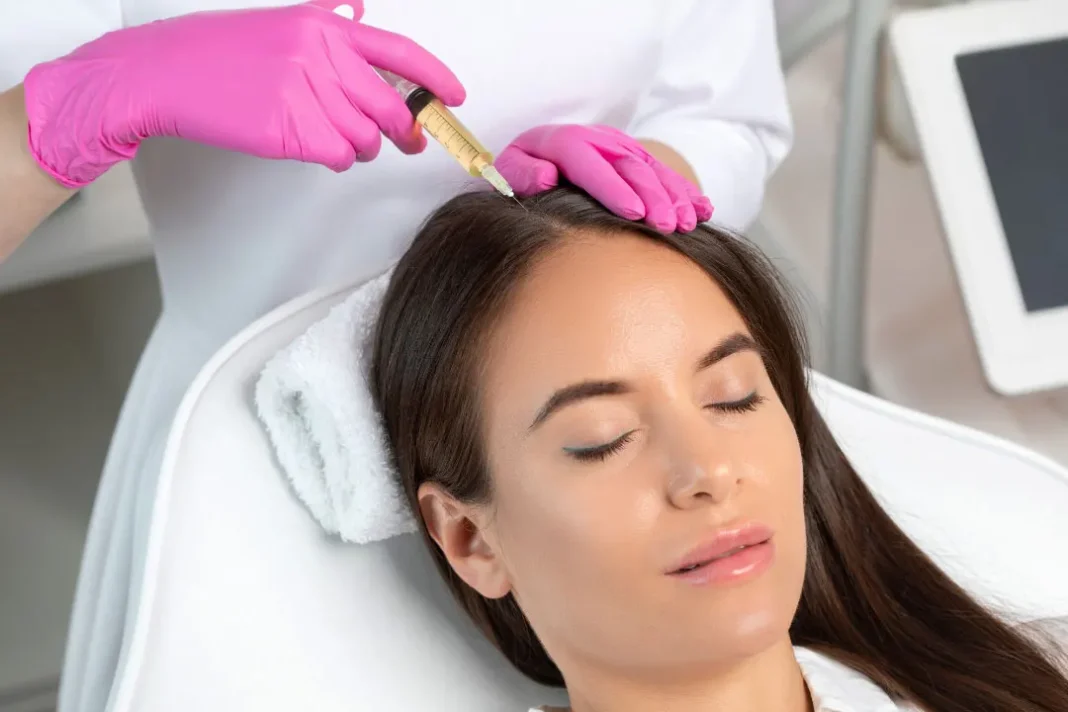Thinning hair is more than a nuisance—it negatively impacts self-esteem and may be caused by underlying health issues. Learn about the best hair treatments for thinning hair and the types of products that might help.
You May Also Like:
BrainMD Restful Sleep Supplement vs DELTA BrainLuxury
Vitamin B5: Benefits, Dosage, Side Effects, Drug Interactions, And Other Important Information
The Best Hair Treatments for Thinning Hair: Regain Your Confidence Today is an original (BetterNutritionNews) article.
Thinning hair:
Its effects on appearance and self-confidence
Personal appearance and self-esteem go hand in hand, and our hair plays a major role in it. So when our hair starts to thin, it can become a serious source of concern. This is true whether hair is just starting to recede, thinning overall, or falling out more profusely. Self-confidence is shaken and our thoughts go to “Will I go bald? … What can I do?”
Hair loss is generally associated with men and male pattern baldness, but it can occur at any age, affecting both men and women. Fortunately, progress has been made in recent years to slow, stop, or even reverse thinning hair. However, it’s important to know what is causing the hair loss before considering an optimal hair treatment.

Thinning hair causes:
Heredity, hormonal, medications, or conditions
Genetics. Heredity is a common cause of thinning hair. “This condition is called androgenic alopecia, male-pattern baldness and (to a lesser extent) female-pattern baldness,” according to the Mayo Clinic. “It usually occurs gradually and in predictable patterns—a receding hairline and bald spots in men, and thinning hair along the crown of the scalp in women.”
The medically-recognized cause of most genetic hair loss is DHT, or dihydrotestosterone, a hormone produced when the body breaks down testosterone. DHT enters the hair follicles (where hair grows) and cuts off their blood supply.
“High levels of DHT can shrink your hair follicles and shorten the hair growth cycle, resulting in hair loss,” according to the Cleveland Clinic.
But in addition to genetics, many other factors influence thinning hair:
Medications and supplements. Hair loss can be a side-effect of certain medications, including acne treatments high in vitamin A, anabolic steroids, blood thinners, and drugs taken for depression, arthritis, high blood pressure, and many other conditions.
Dietary deficiencies. A lack of sufficient protein or vitamin B12 may cause hair follicles to go dormant. Low levels of key minerals such as iron, zinc, and copper can also reduce hair growth.
Stress. Chronic (long-term) stress and anxiety may cause the immune system to attack the follicles in the scalp. As a result, hair stops growing, and if the condition continues, weakened hair shafts die and fall out prematurely.
Hormonal changes. Among women, thinning hair during menopause is common. Other hormonal changes resulting in thinning hair are also seen during pregnancy and childbirth, or occur with thyroid problems or while using oral contraceptives and other hormonal forms of birth control. And among men, thinning may coincide with the lowering of testosterone with age or illness.
Physical damage. Day-to-day styling can be a major cause of hair loss and breakage; blow dryers, curling and straightening irons, weaves, and even daily shampooing. The use of chemical products such as; dyes, bleaches, permanents, and straighteners adds additional stress to hair.
Other factors known to affect hair health and vitality include a range of illnesses and toxins. Even toxins in cigarette smoke can attack hair follicles.
The Best Hair Treatments for Thinning Hair: Regain Your Confidence Today is the (BetterNutritionNews) report.

Hair treatments to reverse hair damage and thinning hair
You may be able to stop or reverse hair loss attributable to controllable factors by simple lifestyle modifications:
If medications or hormone treatments are causing thinning hair, check with your doctor for alternatives that may be less problematic.
Dietary deficiencies affecting the hair may be reversed with a balanced diet, including nutritionally complete protein. Dietary supplements may be needed for missing vitamins and minerals, especially for those who are vegetarians or vegans.
If you are experiencing thinning hair due to simple stress and anxiety, try aerobic and resistance exercise, yoga, tai chi, mindfulness, and meditation.
Assess your daily hair grooming routine to assure you are not causing excessive damage. Be informed of the potential damage to your hair that chemical products can cause.

Hair treatments to slow, stop, and reverse thinning hair
You may be asking: is hair regrowth possible? The answer is yes, even genetically-caused male and female pattern baldness can be treated, according to the American Academy of Dermatology (AAD). “Treatment can help stop or slow hair loss. It may also help regrow hair.” The earlier a hair treatment is started, the better it works. “Without hair treatments, you can continue to lose hair.”
Effective thinning hair treatments became available in the 1980s when topically-applied minoxidil received FDA approval; followed by orally-administered finasteride. Today there are many newer drug-free formulations to reactivate dormant and weakened hair follicles; the following topical applications are among the most popular, and are available without a prescription, online, and over-the-counter at retail:
BAICAPIL™ to manage oxidative stress. It contains soy and wheat sprout extracts, and baicalin, an antioxidant and anti-inflammatory medicinal plant. This formulation extends the vitality of hair follicles to revive hair growth (NourishBeaute).
REDENSYL® to stimulate stem cells and initiate new hair growth. It contains botanical ingredients including DHQG (dihydroquercetin-glucoside), a modified polyphenol extracted from the larch tree. “It acts on the stem cells, or outer root sheath cells present in hair follicles to trigger their proliferation” (EmediHealth).
CAPIXYL™ to control the inflammation of the follicles caused by dihydrotestosterone (DHT), the most common cause of male and female pattern alopecia. It contains red clover extract, rich in Biochanin A, which inhibits 5-a reductase, the enzyme that synthesizes DHT in the human body (HairGuard).
A unique combination of topical hair treatments
More Hair Naturally 9 is a topical spray combining the benefits of all three of these formulations: Baicapil to diminish oxidative stress in follicular cells; Redensyl to “awaken” and reactivate dormant follicles; and Capixyl, to help prevent DHT formation.
This breakthrough treatment has the addition of non-embryonic (adipose-derived) stem cells, plus regenerative plant-extract stem cells from bamboo and mountain ginger. The unique complex also includes peptides, proteins, vitamins, minerals, and probiotics. According to founder Mahryah Shain, “More Hair Naturally 9 may be the most effective, safe treatment for thinning hair. You should have visible results within 3 to 6 months.”
You can purchase More Hair Naturally 9 and its companion Triple Stem Cell Shampoo, and full treatment kits on the company’s website, and get a free personalized evaluation of your hair and scalp.

Being aware of when to start thinning hair treatments
Remember, the earlier that treatment for thinning hair is started, the better the outcome. Look for early signs: A receding hairline, widening of the part, visible scalp, more hair in your brush, comb, and sink. Some daily hair loss is normal, but when it starts to become apparent, it’s time to take action.
Further Reading for Additional Knowledge:
American Academy of Dermatology: “Hair Loss – Who Gets and Causes”
Harvard Health: Hair Loss – “What Is It?”
Johns Hopkins Medicine: “Hair Loss – It’s Not Just a Men’s Health Issue”
Mayo Clinic: “Hair Loss”
Important Note: The information contained in this article (The Best Hair Treatments for Thinning Hair: Regain Your Confidence Today) is for general informational purposes only, and should not be construed as health or medical advice, nor is it intended to diagnose, prevent, treat, or cure any disease or health condition. Before embarking on any diet, fitness regimen, or program of nutritional supplementation, it is advisable to consult your healthcare professional in order to determine its safety and probable efficacy in terms of your individual state of health.
Regarding Nutritional Supplements Or Other Non-Prescription Health Products: If any nutritional supplements or other non-prescription health products are mentioned in the foregoing article, any claims or statements made about them have not been evaluated by the U.S. Food and Drug Administration, and such nutritional supplements or other health products are not intended to diagnose, treat, cure, or prevent any disease.



